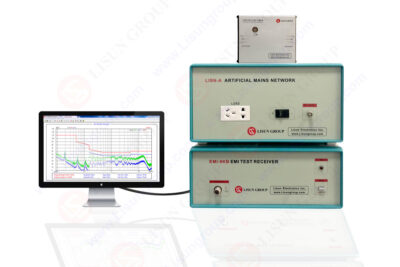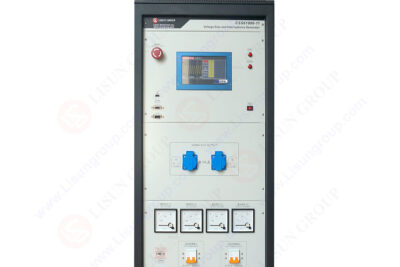
Abstract: This paper comprehensively explores the measurable objects and testing quality of spectrometers, with a particular focus on the LISUN EDX-3 Portable X-ray Spectrometer. The principles underlying its operation, the wide range of materials it can analyze, and the factors influencing its testing quality are examined in detail. Experimental data and comparisons are presented to illustrate it...

Introduction to EFT Immunity Measurement Electromagnetic Compatibility (EMC) is a crucial factor in the design and operation of electrical and electronic equipment. One of the significant aspects of EMC testing is the ability of a device to resist Electromagnetic Interference (EMI) caused by electrical fast transients (EFT), often referred to as Electrical Fast Transient/Burst Immunity. EFT immuni...

Abstract The increasing complexity of modern electrical and electronic systems, combined with their dependency on stable power inputs, necessitates rigorous testing of their immunity to voltage dips and interruptions. These events can significantly affect the operation of sensitive devices, particularly in industrial and commercial applications. This article provides an in-depth examination of DC ...

Introduction In the rapidly evolving field of electronics and electrical engineering, ensuring the reliability and durability of electronic devices against electromagnetic interference (EMI) is crucial. The Damped Oscillatory Magnetic Field Immunity Tester, specifically the LISUN DOMF61000-10 Damped Oscillatory Magnetic Field Immunity Tester, plays a pivotal role in assessing the ability of electr...

Introduction Voltage impulse generators, commonly referred to as Voltage Spike Generators, are crucial tools in electromagnetic compatibility (EMC) testing. These devices simulate high-energy voltage spikes or transients that electrical equipment might encounter during operation, such as those caused by lightning strikes, switching operations, or power-line crosses. Voltage impulse generators are ...

Abstract Conducted interference testing is a critical process in evaluating the electromagnetic compatibility (EMC) of electronic devices and systems. This paper provides a comprehensive analysis of conducted interference testing, focusing on the role of the LISUN EMI-9KB EMI Test Receiver in conducting EMI conducted interference tests. We explore the principles, setup, and applications of conduct...

Flammability testing plays a crucial role in ensuring the safety and compliance of electrical and electronic products. The vertical flammability test is a key method for assessing the fire resistance of various materials, particularly in electrical equipment, household appliances, and plastic components. This test is widely used to classify materials based on their flame-retardant properties, help...

Introduction In today’s rapidly evolving electrical and electronic systems, ensuring the resilience of devices against voltage dips and interruptions is critical. Voltage dips and interruptions are common disturbances in power supply systems that can have a significant impact on the operation of sensitive electrical equipment. To simulate these disturbances, high-reliability equipment such a...

Abstract The CDNE Coupling Decoupling Network is an essential tool for conducting electromagnetic compatibility (EMC) testing. By allowing precise injection and isolation of signals in compliance with international standards, the CDNE ensures reliable assessment of a device’s electromagnetic emissions. This paper focuses on the working principles, applications, and specifications of CDNE net...